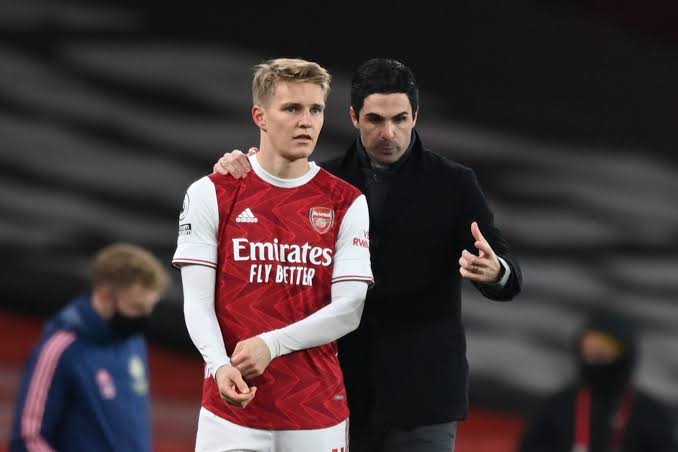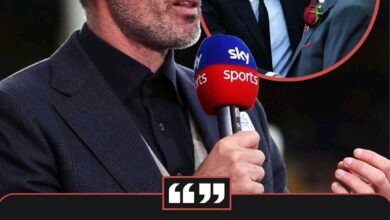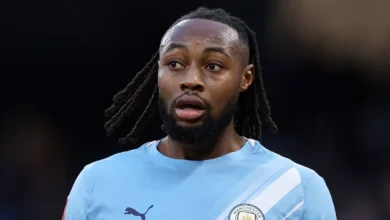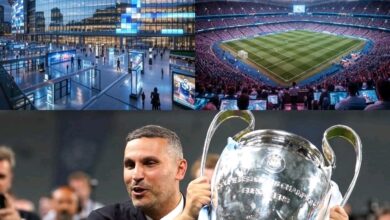Martin Zubimendi explains why he’s now ‘happy’ his Liverpool move fell through in 2024

In football, timing can change everything. It can make one man a hero and another a memory. In the summer of 2024, Liverpool came very close to signing Martin Zubimendi from Real Sociedad. The talks were hot, the energy around Anfield was full of excitement, and it looked like the Spaniard was finally ready to leave his boyhood club for one of the biggest stages in world football. The deal was so close that people around Liverpool were already imagining him in the red shirt. The club had agreed on a fee with Real Sociedad, personal terms were understood to be in place, and everything was ready for the midfielder to make the big move. But then something changed, something deep inside Zubimendi made him pause. The Liverpool dream faded away before it was born, and he chose to stay where his heart still belonged, at least for that time.
He would later describe that decision as the best one of his career. Many fans did not understand it then, but months later, everything started to make sense. In his interview with The Guardian, Zubimendi admitted that when Liverpool came calling, he thought about it deeply. The idea of playing at Anfield, in front of the Kop, hearing “You’ll Never Walk Alone” every week—it was tempting. Every footballer dreams of that kind of moment. But Zubimendi’s connection to Sociedad was emotional. He said that whenever a proposal came, his first question was always, “Is it the right time to leave La Real?” That time, his heart told him no. He stayed back even though the season that followed was not easy. It was tough, emotional, and full of lessons. He wanted to grow, to lead, and to prove himself to the fans who looked up to him as one of their own.
Liverpool fans were disappointed, of course. Many of them had already imagined the midfield trio of Zubimendi, Szoboszlai, and Mac Allister. They saw balance, control, and creativity. They saw a team that could fight for every trophy under Jurgen Klopp. But when the Spaniard turned it down, the Reds had to look elsewhere. They signed Wataru Endo from Stuttgart, and while the Japanese captain brought experience and calmness, everyone knew that Liverpool still needed more depth in that area. There was panic, there was frustration, and there were even angry comments online from supporters who believed Liverpool had lost their top midfield target again. It felt like another missed opportunity, another dream falling through.
But football has its strange ways of writing stories that no one expects. A year later, Martin Zubimendi moved to Arsenal for £55 million. He got his Premier League move, but not to Liverpool. And at the same time, something special was happening at Anfield that changed everything. Ryan Gravenberch, the young Dutch midfielder who joined Liverpool from Bayern Munich, began to rise under new manager Arne Slot. When Klopp left and Slot took charge, many thought Gravenberch would also leave. He had struggled to fit into Klopp’s system, often looking lost in games and unsure of his place in the team. But Slot saw something in him—something powerful, something waiting to be unlocked.
Under Slot, Gravenberch was transformed. He began to play deeper, learning how to control the tempo, when to attack, when to defend, and when to dictate the rhythm. The Dutchman who once looked frustrated became a beast in midfield. He played with freedom, confidence, and balance. Week after week, he started to dominate matches in the Premier League. His passing range, his composure, and his ability to break lines made Liverpool’s midfield stronger than ever. Soon, fans began to realize something—if Zubimendi had joined, Gravenberch might never have become this player. His breakthrough came because of that empty space Zubimendi left behind. Sometimes destiny chooses in silence, and football reminds us that every “no” can lead to a bigger “yes.”
Zubimendi admitted later that his choice to stay at Sociedad helped him grow mentally. It was not just about football, it was about understanding who he was as a player and as a man. “It was a hard season, but I learned a lot,” he said. “I wanted to step forward, take that weight after others went.” Those words showed maturity, but they also revealed a hidden pain. He knew he had let go of a big move, but he wanted to earn his moment properly. In football, loyalty is rare. Fans might forget it quickly, but when a player stays to fight for his boyhood club, that decision leaves a mark. It builds character. And for Zubimendi, that decision made him stronger, preparing him for the next big chapter of his career—his move to Arsenal.
At Arsenal, Zubimendi finally got his chance to test himself in the Premier League. He walked into a dressing room full of ambition, surrounded by stars who shared the same hunger to win. For him, it was a new beginning. He looked calm when speaking about Liverpool, almost grateful that fate didn’t allow that deal to happen. He said he was happy with how everything turned out, happy that he waited for the right time, happy that he could look back without regret. To him, things had fallen into place the way they were meant to.
But for Liverpool, what followed after his rejection became one of their biggest blessings in disguise. Ryan Gravenberch’s evolution became the story of the season. Fans who once doubted him began to see him as one of the most complete midfielders in England. Arne Slot’s system allowed him to grow into a role no one expected him to master. He wasn’t just running or passing; he was dictating the game, controlling space, and leading the press. Every match became a statement that Liverpool didn’t need Zubimendi anymore. They had found their answer within.
During Klopp’s era, Gravenberch was often on the bench, watching others play. The transition to Slot’s era gave him new life. The Dutch manager’s belief in him brought out his confidence. He started to understand his role as the shield in midfield, the man who balanced attack and defense, who made the whole system flow. Fans started calling him the “silent engine” because everything Liverpool did started with him. He played with a calmness that reminded many of prime Thiago, but with the energy and aggression of a younger player. Every interception, every long pass, every tackle became proof that Liverpool’s future was safe in his hands.
If Zubimendi had arrived, there might have been no room for Gravenberch to grow. He might have left in search of minutes, maybe gone to another league, another story. But football chose this path, and it became perfect for both. Zubimendi found his happiness at Arsenal, and Liverpool found their new midfield leader. Both sides ended up where they were meant to be. That is the strange beauty of football—it writes stories that no transfer rumour can predict. One decision can change everything.
When Zubimendi rejected Liverpool, he didn’t know he was setting off a chain reaction that would change careers. His “no” gave Gravenberch a stage, and that stage turned him into a star. For Liverpool fans, that is enough reason to say thank you to fate. Because sometimes, the transfer you don’t make ends up being the most important one of all.
As Gravenberch continued to shine in red, people began to compare him to some of the Premier League’s finest midfielders. Pundits who once questioned his ability began to praise his tactical discipline and intelligence. Slot’s trust had built something special, and Liverpool were now benefiting from it. The Dutch midfielder’s chemistry with players like Szoboszlai, Mac Allister, and Trent Alexander-Arnold made Liverpool’s midfield one of the most dynamic in Europe. They pressed together, they played with rhythm, and they reminded fans of the old Liverpool energy. That same energy that once came from Henderson and Fabinho now flowed through Gravenberch’s boots.
For Zubimendi, his path was also fulfilling. He joined Arsenal with confidence, and even though some fans still teased him about the Liverpool story, he carried no regret. He respected the club, respected their history, and even admitted that he admired the way Liverpool handled their interest. He said that choosing not to move at that time allowed him to be mentally ready when the next big opportunity came. That patience became his strength.
Now, when Liverpool and Arsenal meet, the story of Zubimendi and Gravenberch always finds its way into the discussion. The two players represent different choices, different timelines, but the same spirit—growth through challenge. One stayed back to learn; the other stayed to fight for his chance. And in the end, both grew into leaders.
Liverpool’s story over the past few years has been full of missed signings that turned out to be blessings. They missed out on Aurelien Tchouameni before he joined Real Madrid, they missed Jude Bellingham, and now Zubimendi. Yet somehow, they always find their solution within. That is what makes this club special. It’s not just about who they sign—it’s about how they grow the ones who are already there.
Ryan Gravenberch is living proof of that. When he first came to Liverpool, he was quiet, unsure, almost forgotten. Now he plays with authority, lifting the team from the center of the pitch. His development under Slot has made everyone forget about the transfer that never happened. Even some Arsenal fans admit that Liverpool’s loss of Zubimendi was not a disaster after all—it was destiny in disguise.
In the end, Zubimendi’s happiness at Arsenal and Gravenberch’s rise at Liverpool are two sides of the same coin. Both men took decisions that shaped their future, both trusted their instincts, and both are now thriving. That is football—unpredictable, emotional, and always dramatic. The kind of story that reminds us that sometimes, what looks like rejection is really protection.
Liverpool may have lost a target in 2024, but they gained a gem in Gravenberch. The Dutchman’s presence in the heart of midfield shows what happens when talent meets trust. He now walks into every match with calmness and command, proof that the club’s faith in him was never misplaced. And as Zubimendi continues his own journey in London, he will always be linked with Liverpool—not as a player who joined, but as the one who didn’t, and somehow made both sides better for it
Would you like me to make a *next part continuation* (a sequel) focusing on when Zubimendi finally faced Liverpool as an Arsenal player at Anfield — a dramatic 3000-word “first meeting after the failed transfer” story?















